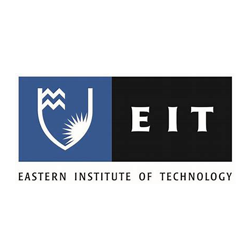
Pasifika Students: Supporting Academic Success through the Provision of Mentoring
Status
Completed: 16 March 2010
Project Details
A six-month project completed in 2010, undertaken by Eastern Institute of Technology, to identify the success factors that help promote Pasifika student academic success from the perspectives of those most directly involved in the mentoring process – Pasifika students and their lecturers, and the Pasifika mentors themselves.
Aims:
The main aims of the project were to:
- focus on the provision of first year Pacific student mentoring in one school (Education and Social Science) in a Polytechnic
- describe the pivotal role of Pacific mentor/s to student success
- identify effective processes and relationships between student and mentor, and student and lecturer
- identify appropriate resources to assist student success
- identify the qualities of successful Pacific mentors
- investigate the role of contextual factors such as liaison with families and communities.
Methodology:
The project was a small scale qualitative study involving:
- a small-scale literature review
- gathering evidence of the experiences and understandings that the Pasifika students and lecturers had of the mentoring programme
- interviewing and focus group methods which provided a rich source of narrative data and foregrounded participants’ voices
- using the qualitative data to identify themes and key ideas to be further investigated across other schools within EIT, involving a greater number of Pasifika student participants.
Research question:
- What are the factors associated with successful mentoring practices for Pasifika students at a tertiary institution?
Team

Diane Mara
Project Leader
Eastern Institute of Technology
Maryanne Marsters
Eastern Institute of TechnologyStatus
Funding
$9,313.00 (excl GST)
Key Findings
The key findings from the project included:
- This study has provided the essential first-steps to achieving an integrated approach to encouraging Pasifika students to enrol in tertiary study and to then support them through a programme of study in order to achieve academic success.
- Success is determined by the quality and nature of: the Pasifika student mentor’s role and tasks; the skills, experience and qualities of the Pasifika student mentor; the mentoring relationships established and maintained between the mentor, the students and the lecturers; and lastly, the need to include more culturally appropriate learning and teaching resources and tools for Pasifika students.
- This study has assisted EIT’s strategic response to enhancing Pasifika students’ success through the development of a Pasifika database, interview questions, and research tools that have the potential to contribute to more robust evidence gathering and programme evaluation of Pasifika student mentoring at EIT in the future.
- The data gathered so far in the study provides support for ongoing and continuing student mentoring for Pasifika students in the School of Education and Social Sciences and beyond. These research findings form the basis for future research proposals and applications for funding to extend our work at EIT.
- The key outcomes of this study do not rest with demonstrating direct and provable links between the Pasifika student mentoring process and academic success. This is impossible to do within a six-month period. However, what this study has contributed to at the institutional level is a review of the institution’s policy focus on Pasifika students and communities and the development of a Pasifika Strategy that links to the overall EIT Strategic Plan (2010-2014).
Key Recommendations
The main recommendation from the project was:
Future research | A more comprehensive description and analysis of success factors can only be identified through a larger and more extensive study. Future research of Pasifika students’ academic success across the tertiary sector should increasingly focus on identifying, more specifically, the aspects of mentoring relationships that are most likely to lead to academic success for Pasifika students and to demonstrate these connections to success for them.
Research to identify the success factors that promote Pasifika student academic success through the provision of mentoring.
- 2 March 2010